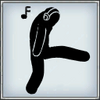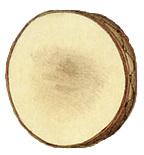- Portals
- The Current Year
- ED in the News
- Admins
- Help ED Rebuild
- Archive
- ED Bookmarklet
- Donate Bitcoin
Contact an admin on Discord or EDF if you want an account. Also fuck bots.
Pitchfork Media: Difference between revisions
imported>Meepsheep oops |
|||
| (3 intermediate revisions by 2 users not shown) | |||
| Line 11: | Line 11: | ||
==The Writers== | ==The Writers== | ||
The site's writers are themselves bipolar, [[retard]]ed, vainglorious senior cult members who | The site's writers are themselves bipolar, [[retard]]ed, vainglorious senior cult members who think their unintelligible, turgid opinions are more important than the air [[you]] breathe. The archetypal sweater-clad, horn-rimmed eye-glass wearing cunt-of-a-staff that Pitchfork Media employs loves nothing more than spewing bombastic nonsense about bands which have transacted with Pitchfork in the Corrupt Indie Machine. | ||
==The Reviews== | ==The Reviews== | ||
| Line 28: | Line 28: | ||
One of the most brazen examples of the inner workings of the Corrupt Indie Machine in recent memory is the rare 10.0 rating (as well as "Album of the Year" designation) [[Kanye West]] [http://pitchfork.com/reviews/albums/14880-my-beautiful-dark-twisted-fantasy/ received for his album ''My Beautiful, Dark, Twisted Fantasy''.] Any rudimentary analysis of this incident/transaction would reveal that [http://pitchfork.com/news/40498-kanye-gives-surprise-performance-at-offline/ Kanye had performed at "Pitchfork Offline"] about one month prior to his review. Kanye had clearly obtained an agreement where he would perform for free at their retarded concert in exchange for this 10.0 rating and/or future favors to be transacted in the Corrupt Indie Machine. | One of the most brazen examples of the inner workings of the Corrupt Indie Machine in recent memory is the rare 10.0 rating (as well as "Album of the Year" designation) [[Kanye West]] [http://pitchfork.com/reviews/albums/14880-my-beautiful-dark-twisted-fantasy/ received for his album ''My Beautiful, Dark, Twisted Fantasy''.] Any rudimentary analysis of this incident/transaction would reveal that [http://pitchfork.com/news/40498-kanye-gives-surprise-performance-at-offline/ Kanye had performed at "Pitchfork Offline"] about one month prior to his review. Kanye had clearly obtained an agreement where he would perform for free at their retarded concert in exchange for this 10.0 rating and/or future favors to be transacted in the Corrupt Indie Machine. | ||
Another 10.0 transaction is a [http://pitchfork.com/reviews/albums/6656-kid-a/ review for Radiohead's "Kid A" | Another 10.0 transaction is a [http://pitchfork.com/reviews/albums/6656-kid-a/ review] for [[Radiohead]]'s "Kid A" which reads like they somehow transcribed a hipster having an [[orgasm]]. | ||
===Deleted Reviews=== | ===Deleted Reviews=== | ||
Latest revision as of 04:27, 4 March 2025

Pitchfork is a content farm and alleged internet publication of a prominent religious group with many members. The site ostensibly focuses on reviewing, and often lavishly praising indie music that most outsiders of the group consider middling to second-rate garbage. However, an objective analysis of these reviews and the review process reveals widespread, systemic corruption stemming from an extremely lucrative conspiracy known as the Corrupt Indie Machine, of which Pitchfork is the nefarious ringleader.
The website's editorial style achieves an utterly fantastic level of pretension and priggishness, once thought to be impossible within the borders of civilized society. The name Pitchfork Media is meant as an allusion to Satan's weapon of choice. Legend has it that editor-in-chief, Ryan Schreiber allowed (a then unknown) Satan to enter his asspipe with his giant barbed-membrane and fill his bowels with boiling hot feculent demon-seed as part of a deal to find him his loyal, anencephalic followers.
The Corrupt Indie Machine
A term originally coined by intrepid journalist Carles on the blog Hipster Runoff, the Corrupt Indie Machine is described as "a massive conspiracy between the Indie Media, Blogs, Buzzbands, Buzz Humans and (Major and Indie) Labels to produce and farm inauthentic, inorganic, artificial buzz." Pitchfork's position as arguably the most influential indie tastemaker has made it the apparent leader of the cartel.
In order to receive a favorable review, a buzz artist or its label must first transact with the Corrupt Indie Machine, i.e. provide exclusive access, give free performances at Pitchfork shit-events, or even cold hard cash in exchange for buzz. The artist must also become BFFs (with benefits) with the insufferable Ryan Schreiber. The ostensible approval of a band's album is a golden ticket to the Willy Wonka's buzz factory, aka the indie blogosphere, aka the CONTENT FARM; a horrifying place where the zombie-like horde of useless buzz humans echoes the Machine's buzz to a deafening shrill. This process is repeated over and over, disguised as objective indie music journalism which Pitchfork's loyal readers believe it to be.
The Writers
The site's writers are themselves bipolar, retarded, vainglorious senior cult members who think their unintelligible, turgid opinions are more important than the air you breathe. The archetypal sweater-clad, horn-rimmed eye-glass wearing cunt-of-a-staff that Pitchfork Media employs loves nothing more than spewing bombastic nonsense about bands which have transacted with Pitchfork in the Corrupt Indie Machine.
The Reviews

Pitchfork's reviews themselves read like nonsensical, pompous, and bombastic tabloid journalism not fit even for the lowest rack of the supermarket checkout shelf--largely a consequence of their writers being lobotomized Pitchfork cult members themselves. As a collection, the reviews seem like the rants of a jealous teenage girlfriend, putting pins in a voodoo doll of the artists who have not paid their dues to the Corrupt Indie Machine and drooling obsessively over bands who have.
Buzzbands or future buzzbands which have transacted with the Corrupt Indie Machine are rewarded with lavish praise, usually 8.0 or higher (depending on the transaction) with the "Best New Music" designation. It is a harsh reality that most of these bands are destined to put out one substandard album, reap the lavish benefits of the Corrupt Indie Machine through one album cycle, and will never be heard from again due to a combination of artistic inadequacy, excessive heroin consumption, and/or inability to feed the Corrupt Indie Machine for another cycle.
Bands that have not transacted with Pitchfork through the Corrupt Indie Machine receive a 6.0 at best (considered "panned") and never see the light of the front page (except for those which are valuable to the content farm (SEO), and those being made an example of--a lynching in Pitchfork's public square). Nevertheless, these reviews are vital to maintaining the illusion of Pitchfork being a music criticism website. They are also vivid examples of what can happen if you refuse to pay the Corrupt Indie Machine. Like the Mafia don who has a disobedient storekeeper beaten to a pulp for refusing to pay protection money--it's not enough to collect the money, he must be made an example of to others for his disobedience.
The refusal to transact with the Corrupt Indie Machine and its corresponding effects--a "pan" or extremely poor review on Pitchfork--are profound. The indie community will respond decisively to a negative review with their wallets and nonappearance at a panned artist's shows. You're fucking done, son. For new artists, nobody except those who visited Pitchfork on the day your review was posted will ever hear of your band. For already established artists, or even former buzzbands, you will be shunned by all the crusty hipsters who used to come to your shows and your album will make no money. Travis Morrison, who had earlier received buzz from Pitchfork, was given a 0.0 rating on his album Travistan. This pan led to not only reverberations in the echo chamber of the indie blogosphere, but also a massive sales drop, virtual college radio blacklist, and the loyal readers of Pitchfork, his biggest fanbase constituency, stopped showing up at his show. Travis had gotten too big for his britches, refused to pay his dues to the Corrupt Indie Machine, and these are the consequences.
10.0 reviews
There is no reason a serious music journalist should ever give a composition a 10/10. If any work legitimately deserved that score, the human race would extinguish itself in its glorious honor and none of us would be around to ponder the implications. Yet, Pitchfork routinely hands out the score to various compositions, clearly in exchange for artists and/or their labels transacting with the Corrupt Indie Machine.
One of the most brazen examples of the inner workings of the Corrupt Indie Machine in recent memory is the rare 10.0 rating (as well as "Album of the Year" designation) Kanye West received for his album My Beautiful, Dark, Twisted Fantasy. Any rudimentary analysis of this incident/transaction would reveal that Kanye had performed at "Pitchfork Offline" about one month prior to his review. Kanye had clearly obtained an agreement where he would perform for free at their retarded concert in exchange for this 10.0 rating and/or future favors to be transacted in the Corrupt Indie Machine.
Another 10.0 transaction is a review for Radiohead's "Kid A" which reads like they somehow transcribed a hipster having an orgasm.
Deleted Reviews
In order to cover its ass for looking fucking retarded in historical retrospect, Pitchfork will frequently throw reviews down the memory hole. Sometimes it will even pen a new favorable review, disguising the fact that they may have panned an artist who had later become a major player in a musical trend, or the opposite--panning the album of a band it had originally favored. Here are a few deleted reviews:
- 9.8 rating for UNKLE's Psyence Fiction, which was deleted. When their next album came out 4 years later, they called Psyence Fiction "one of the most anti-climactic and jaw-dropping disappointments of recent years" which "came up short on little things like, oh, vitality, restraint, emotional resonance, and tunes."
- Review for John Coltrane's Live at the Village Vanguard - Before Pitchfork became famous, one of their worst was Ryan Schreiber's review of a John Coltrane album where he basically talked like a 1960s negro for five paragraphs. When Schreiber realized the review made him look like a racist prick, he decided to delete fucking everything.
- 9.5 review of Save Ferris' It Means Everything
- Two negative reviews for By Divine Right albums were removed after its members became successful with the band Broken Social Scene and their own solo work. Steven Byrd's 1.8 review of By Divine Right's Bless This Mess called the members "retard(s) with a guitar" who "wouldn't know Rock and Roll if she broke into their house and beat up their children."
- 0.8-rated review of Belle and Sebastian's The Boy With the Arab Strap was removed after the band's comeback in the mid-to-late 2000s. The reviewer lambasted the band for writing songs that were "so sticky they should be hanging from Ben Stiller's ear, and I don't mean that in a good way."
- A 0.0 review of the Flaming Lips album Zaireeka; a review that also derided all Flaming Lips fans.
- A 9.4 review of The Roots album Things Fall Apart, apparently for the simple fact that the end of the very first paragraph contains the statement "although we will not un-publish anything". Yes, that's an actual quote.
- An 8.7 review of Neutral Milk Hotel's In The Aeroplane Over The Sea was deleted, yet then given a new, perfect 10 review in 2005. This stands apart from other typical Pitchfork practices- instead of just giving it new praise in a later staff list (in which it was named the 4th best album of the 90's) or simply scrubbing it from memory, NMH's dramatic rise in status as the ultimate object of indie worship and circlejerking was so profound that even a score as high as 8.7 just wasn't enough to cash in on this wave.
- A 7.5 review of American Football's self-titled album. After becoming lauded as a masterpiece by emo-revival nerds everywhere, Pitchfork had to remove this one in the event that it may cause them to come off as unhip. Almost a decade later, Pitchfork would rereview the album, giving it an 8.6 and "best new reissue".
The Readers
The indoctrinated reader of Pitchfork has been programmed to buy whatever Pitchfork deems worthy (especially music that is labeled "Best New Music"). Even if the music is part of a genre that the reader dislikes, he or she will purchase it and instantly become a fan. Even if the reader has given it a preview listen before buying it and isn't impressed, he or she will purchase it and instantly become a fan. Hundreds of thousands of mindless cult members tune in to Pitchfork Media's mind-numbing rants in order to feel "in the know." However, one prime directive of the cult is that, among outsiders, the cult member must always deny that they read the online jerk-off rag because of the fear that it will make them unhip.
The main gathering place of Pitchfork cult members is the /mu/ music board on the imageboard website 4chan.org.
Pitchfork Music Festival
Also known as the "Endless stream of boring, marginally talented white people strumming Fenders while a crowd of upper middle class honkies dressed like insufferable assholes stand like bored statues wondering why they wasted $100+ on this shit and there are also a few rappers they pretend to like too Festival." Annually, Pitchfork hosts two cult festivals which host bands it has hyped over the past year, which come to play for a drooling, unbathed sea of loyal Pitchfork readers in Chicago and Paris. These bands are indentured to play at its gatherings in exchange for the buzz they've received from the Corrupt Indie Machine. It's really a depressing situation for all involved.
See Also
External Links
- pitchfork.com what did you think
- HIPSTER RUNOFF the indispensable counterpoint to Pitchfork and the Corrupt Indie Machine
- SA pwns pitchfork

|
Pitchfork Media is part of a series on Visit the Music Portal for complete coverage. |

|
Pitchfork Media is part of a series on Visit the Sites Portal for complete coverage. |
|
Pitchfork Media is part of a series on
|
 |
|
Ideas Sites Music Movies and TV Shows Places People Misc
|
||